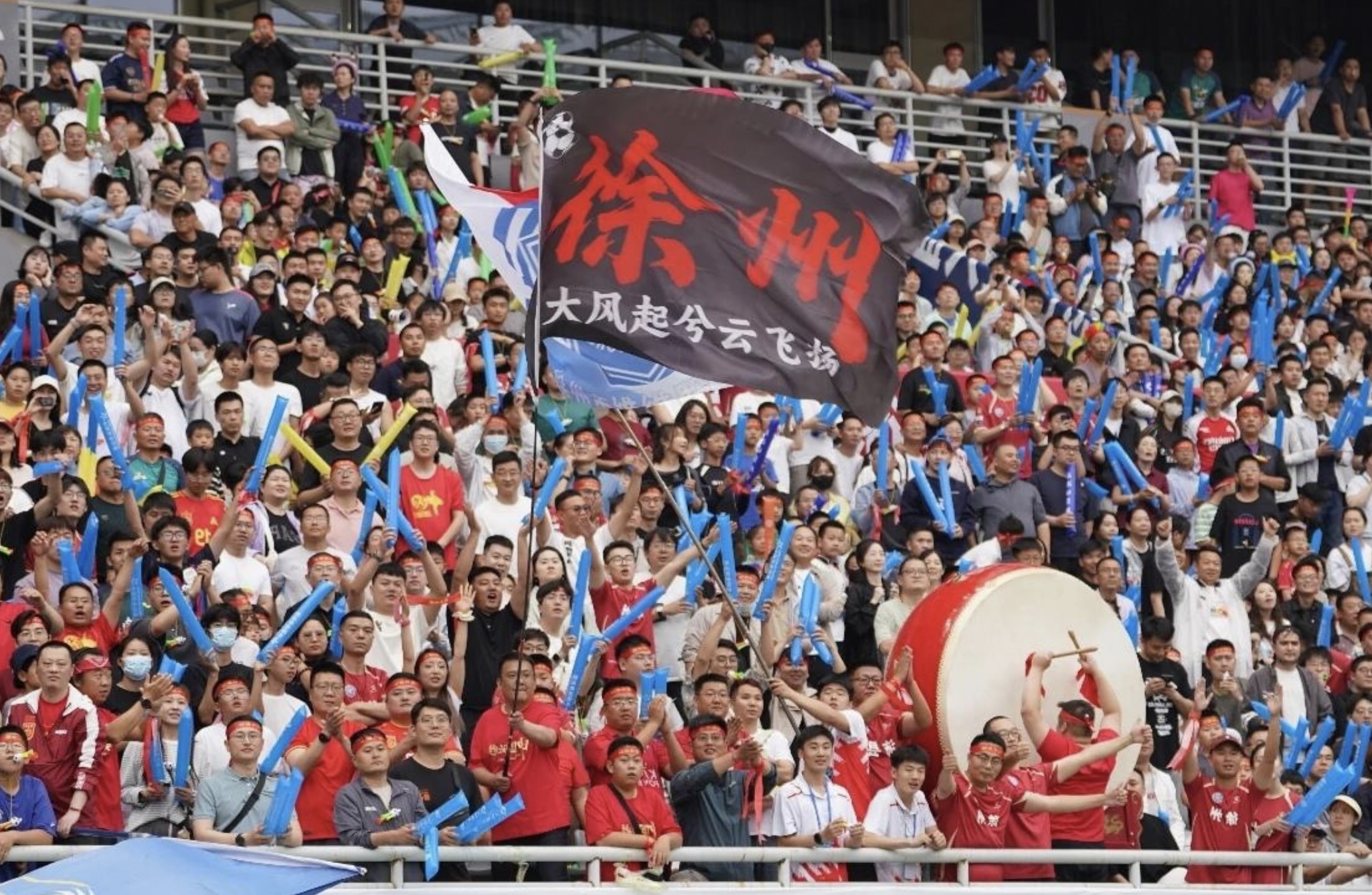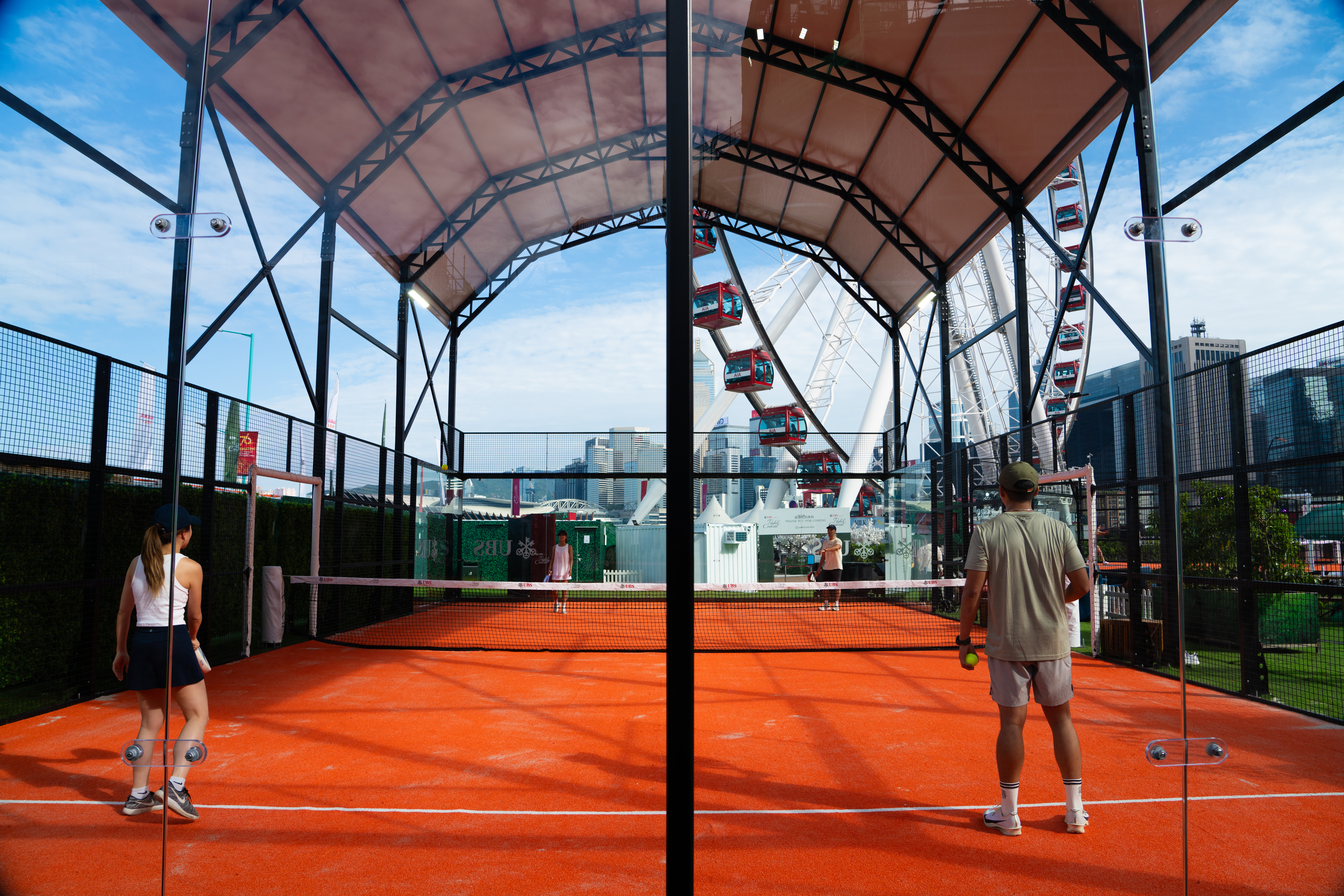China’s national football team is making headlines again—for completely the wrong reason. The team failed to qualify for the FIFA World Cup for the sixth consecutive time. China’s only appearance in the tournament dates back to 2002. In the span of 23 years, the national team cycled through 14 head coaches, averaging one every 1.5 years. As the team prepares for July’s East Asian Football Championship, the current head coach, Branko Ivankovic, was dismissed and replaced by Dejan Jurić. The decision ignited a heated debate within the Chinese football community, as the national team enters another phase of uncertainty.
Back in 2016, after yet another disappointing match, an outraged fan was caught on camera yelling, “Fuck you! Refund!” The moment went viral, and the man dubbed “Brother Refund” quickly became one of China’s most iconic internet memes. In that same interview, another irritated fan said tearfully, “I’ve been watching football for thirty years. We don’t have hope.” Such sentiment is not uncommon among Chinese football fans.
Men’s football has long lagged behind China’s powerhouse sports like table tennis and badminton. Online, the national team is regularly ridiculed for their sauntering style of play and poor attitude. Without a deep-rooted football culture in China, there simply isn’t enough local support to sustain national teams.
But in an unexpected twist, football seems to be catching on in the most grassroots and organic way possible—with amateur teams leading regional competitions.
In 2023, CunChao (Village Super League) took the internet by storm, alongside CunBA (Village Basketball Association). The character 村 (cūn) means “village” in Chinese, and CunChao gathered eight amateur teams representing different villages in Guizhou Province. The game was held during the Chinese New Year holidays and drew a whopping 60,000 spectators at its peak while going viral online with 4.8 billion views.
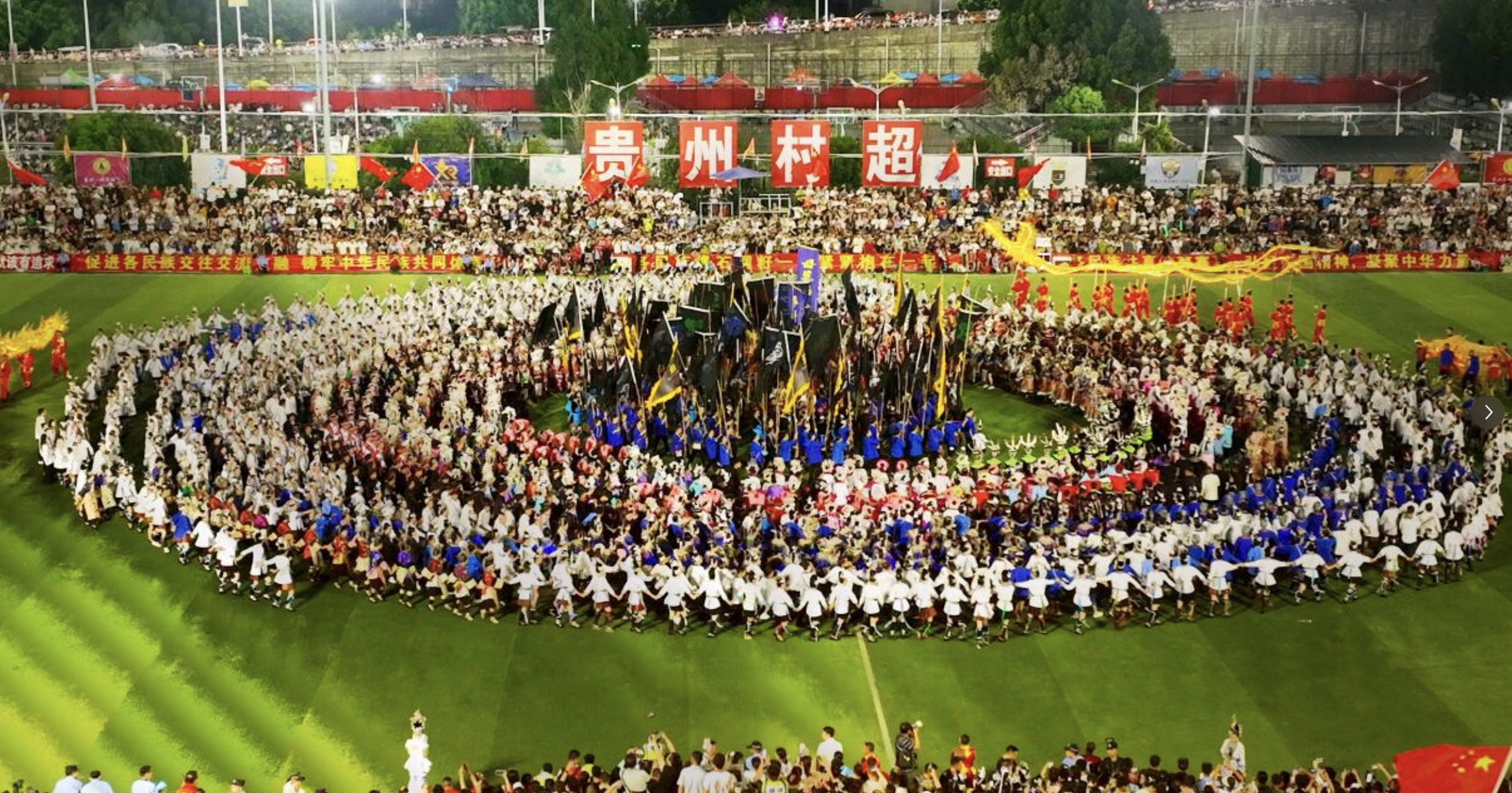
This year, SuChao, or the Jiangsu Super League, replaced CunChao as China’s football sensation. The first province-wide amateur football competition in Jiangsu features 13 teams representing the province’s 13 cities. Kicked off in May and running through November, SuChao began with only a few thousand attendees for its first two matches. By the fourth match, attendees reached over 30,000 as SuChao became an overnight sensation. With affordable tickets ranging from free admission to just 30 RMB (around 4.17 USD), sales for this weekend’s Changzhou vs. Nanjing match have already received over 76,000 preorders.
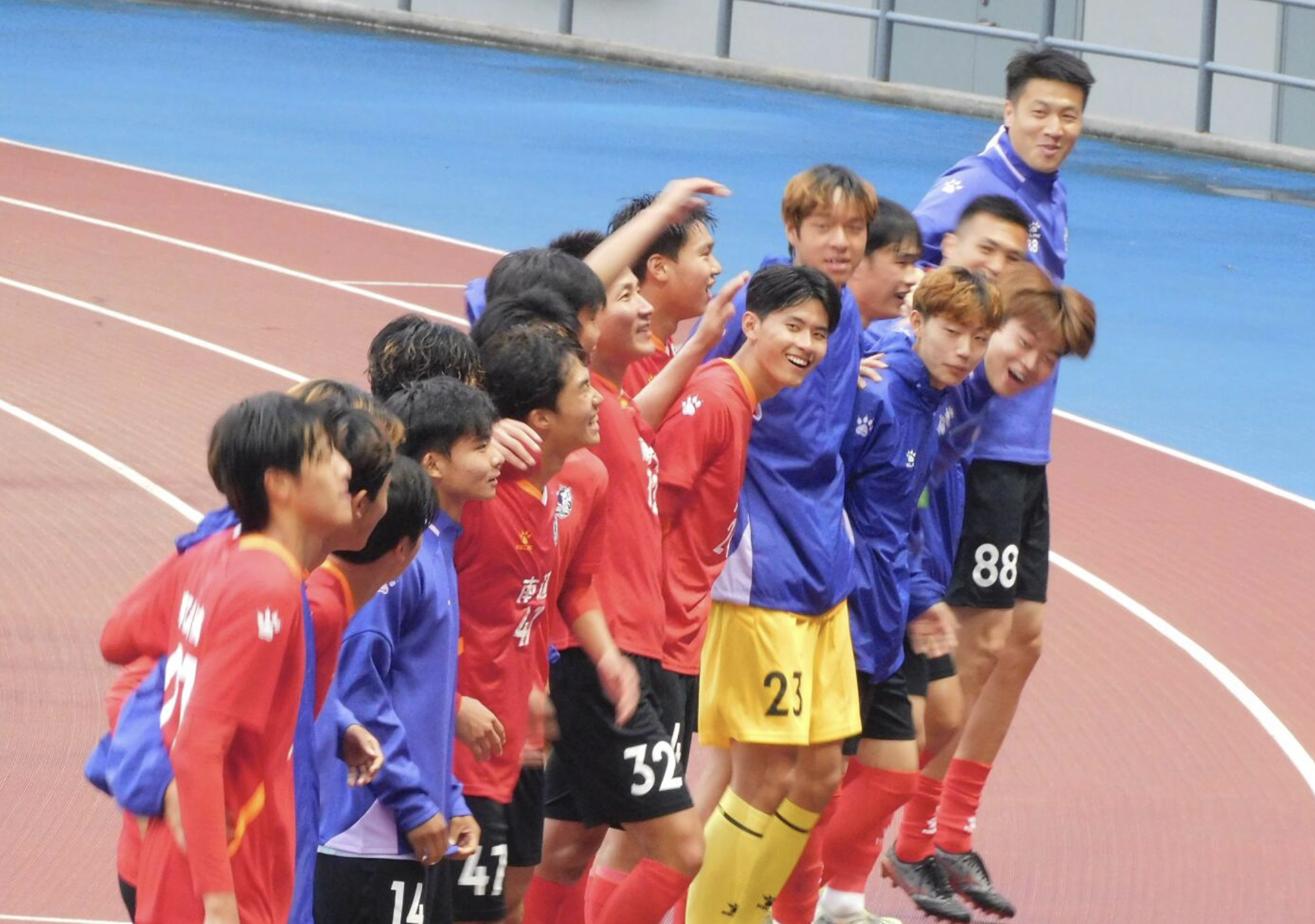
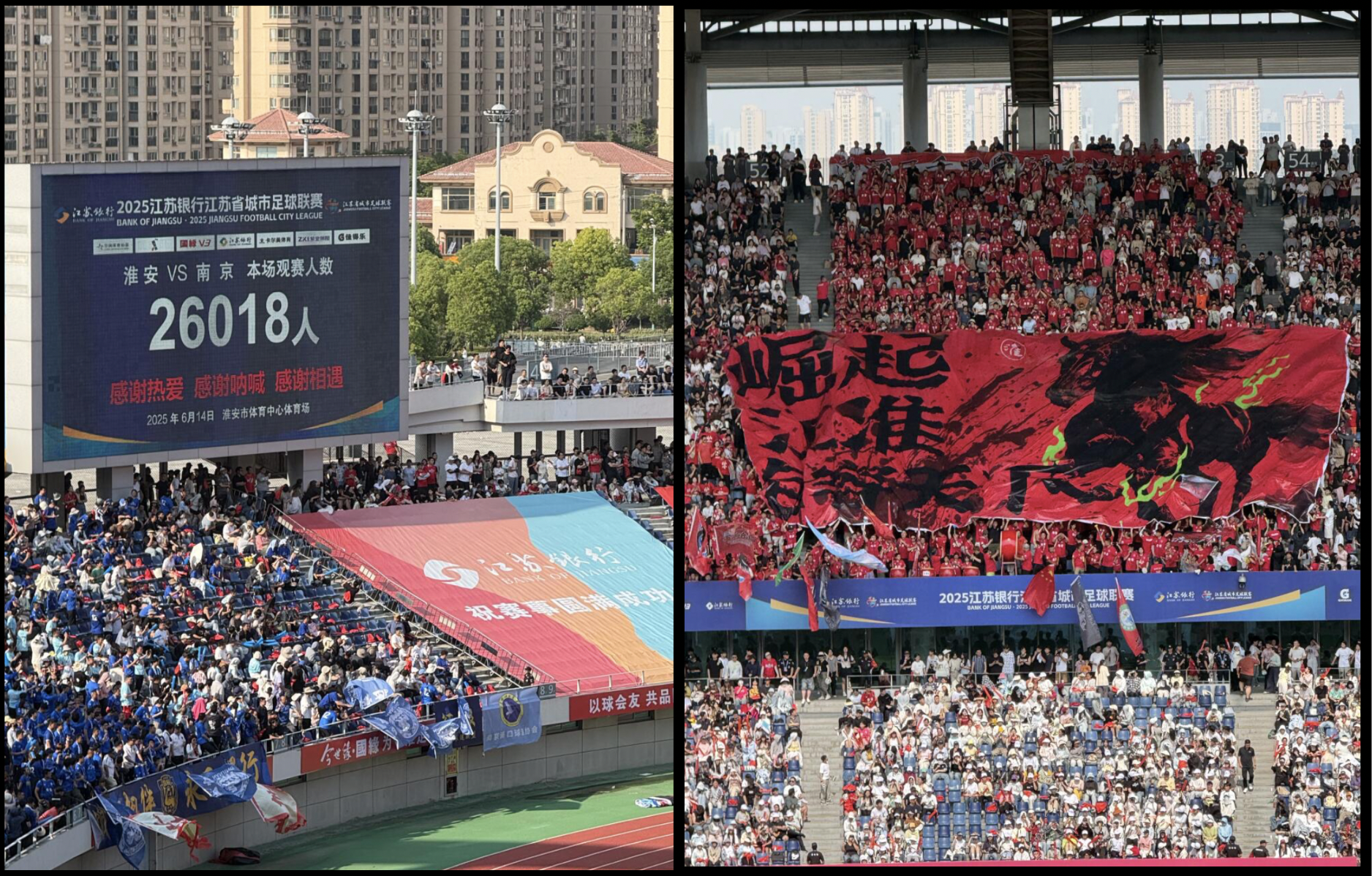
While 2023’s CunChao highlighted Guizhou’s ethnic Miao culture with traditional dances and costumes, SuChao’s popularity triggered an explosion in tourism for the entire province. Compared to June of last year, Jiangsu reported a 305% visitor increase for tourist sites. Local tourism bureaus also rolled out bundle deals, combining football tickets, sightseeing passes, and souvenir goodie bags. With the games lasting seven months, Jiangsu is expected to see a continuous stream of domestic visitors.
A friendly rivalry has also been brewing between the cities, trying to one-up one another with creative slogans and internet memes. Nanjing trended on Weibo for proclaiming, “Competition comes first, friendship comes fourteenth,” as a parody of the Chinese saying “Friendship first, competition second.” Interest in Jiangsu cuisine also spiked online, with Nanjing salted duck and traditional Nantong dim sum climbing in web searches.

Despite China’s weak football presence, SuChao is becoming a cultural phenomenon that goes beyond sports. In a combination of internet virality, city pride, and meme culture, SuChao is turning football into mass entertainment that resonates more with young people’s lifestyles. With other provinces like Guangdong and Sichuan announcing their own amateur tournaments, SuChao may have just planted a seed of momentum for China’s football culture.
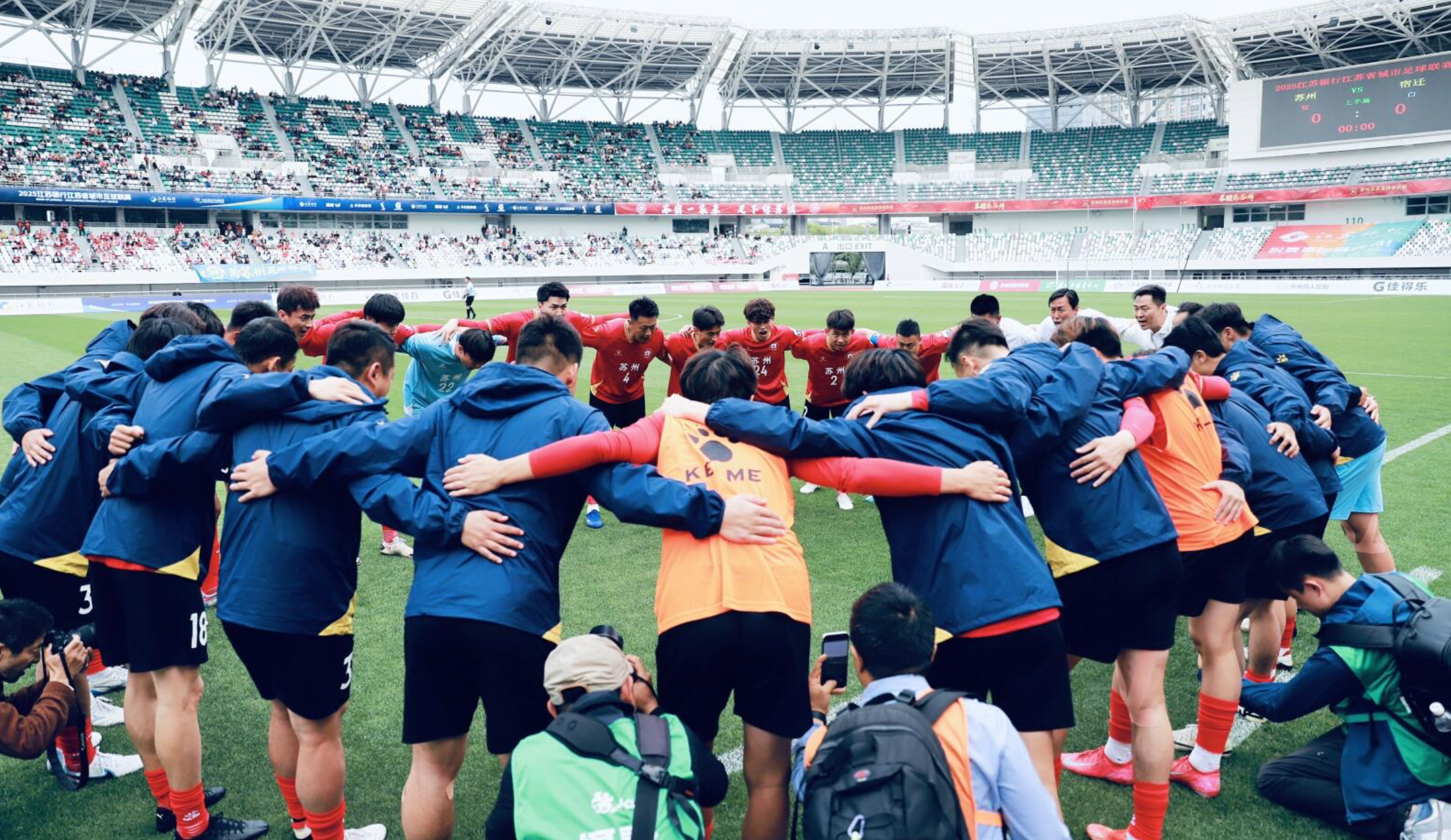
Cover image via Xiaohongshu.

